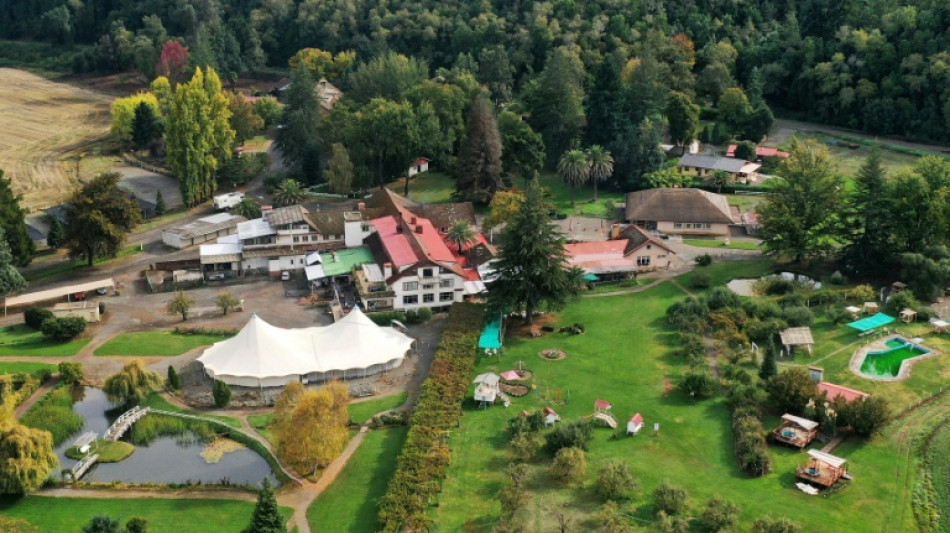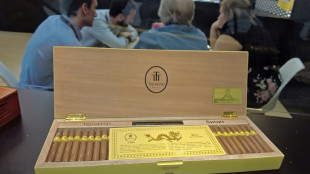

Chile weighs future of charming German village with dark past
With its pristine swimming pool, manicured lawns and lush forest backdrop, Villa Baviera, a German-themed settlement of 122 souls in southern Chile, looks like the perfect holiday getaway.
But Colonia Dignidad, as it was previously known, is a byword for horror, as the former home of a brutal cult that was used for torturing and killing dissidents under the dictatorship of Augusto Pinochet.
Twenty years after the cult leader, former Wehrmacht soldier Paul Schaefer, was jailed for the sexual abuse and torture of children at the colony, the Chilean state wants to turn it into a memorial for the victims of the country's 1973-1990 dictatorship.
In June last year, President Gabriel Boric ordered that 116 hectares (287 acres) of the 4,800-hectare site, an area including the residents' homes, a hotel, a restaurant, and several food processing factories, be expropriated to make way for a center of remembrance.
But some of the inhabitants, who were separated from their families as children, subjected to forced labor, and in some cases, sexually abused, say they are being victimized all over again.
- 'Heavy burden' -
Schaefer founded Colonia Dignidad in 1961 as an idyllic German family village -- but instead abused, drugged and indoctrinated the few hundred residents and kept them as virtual slaves.
The boundaries between abuser and abused were blurred, with the children of Schaefer's sidekicks counting themselves among his victims.
Anna Schnellenkamp, the 48-year-old manager of the colony's hotel and restaurant, said she "worked completely free of charge until 2005," the year of Schaefer's arrest. "So much work I broke my back."
Several years ago Schnellenkamp, whose late father Kurt Schnellenkamp was jailed for five years for being an accomplice to Schaefer's abuse, finally found happiness.
She got married, had a daughter and started to create new, happier memories in the colony, where everyone still communicates in German despite being conversant in Spanish.
But she still views the settlement as part of her birthright.
"The settlers know every detail, every building, every tree, including where they once suffered and were forced to work," she explained.
- Potato shed torture cell -
Around 3,200 people were killed and more than 38,000 people tortured during Chile's brutal dictatorship.
An estimated 26 people disappeared in Colonia Dignidad, where a potato shed, now a national monument, was used to torture dozens of kidnapped regime opponents.
But on the inside too, abuse was rife.
Schaefer was captured in 2005 on charges of sexually abusing dozens of minors over nearly half a century. He died in prison five years later while in preventive custody.
His arrest, and those of 20 other accomplices, marked a turning point for the colony, which had been rebranded Villa Baviera a decade previously.
Suddenly, residents were free to marry, live with their children, send them to school and earn a paycheck.
Some of the settlers returned to Germany.
Others remained behind and built a thriving agribusiness and resort, where tourists can sample traditional German fare, such as sauerkraut.
Some residents feel that Chile, which for decades turned a blind eye to the fate of the enclave's children, now wants to make them pay for the sins of their fathers.
"One feels a kind of revenge against us," said Markus Blanck, one of the colony's business directors, whose father was charged as an accomplice of Schaefer's abuse but died before being sentenced.
The government argues that the expropriations are in the public interest.
"There is a national interest here in preserving our country's historical heritage," Justice Minister Jaime Gajardo told AFP, assuring that those expropriated would be properly compensated.
- European-style memorial -
While several sites of torture under the Chilean dictatorship have been turned into memorial sites, Gajardo said the memorial at Villa Baviera would be the biggest yet, similar to those created at former Nazi concentration camps in Europe.
It is not yet clear whether it will take the form solely of a museum or whether visitors will also be able to roam the site, including Schaefer's house and the infamous potato shed.
The clock is ticking down for Boric to make the memorial a reality before his term runs out in March 2026.
His government wants to proceed quickly, for fear that the project be buried by a future right-wing government loathe to dwell on the abuses of the Pinochet era.
Th.Baumann--VZ



